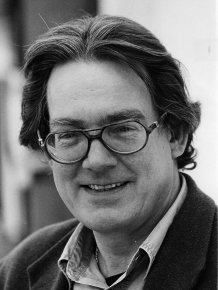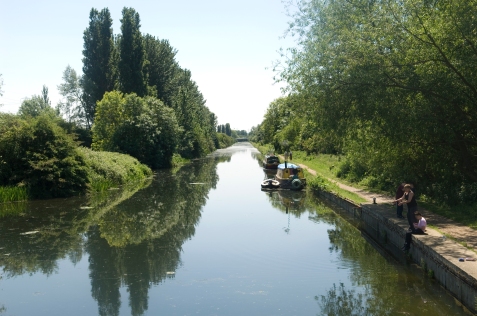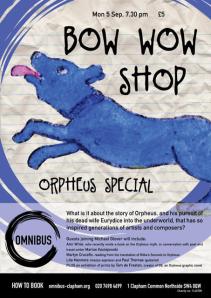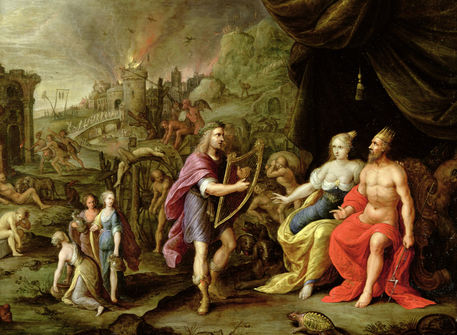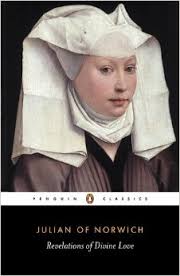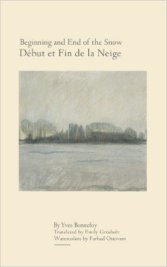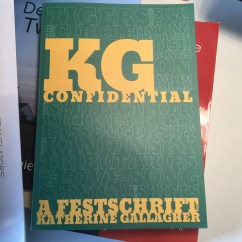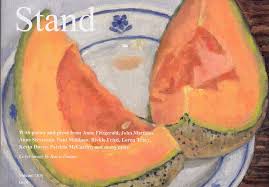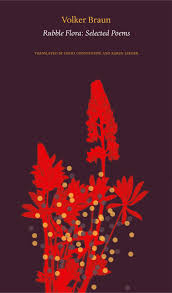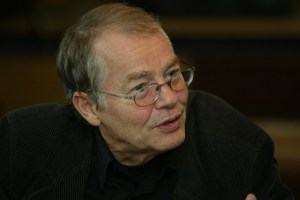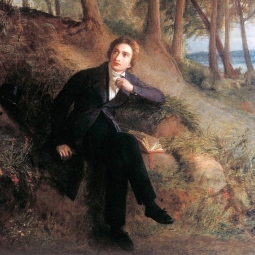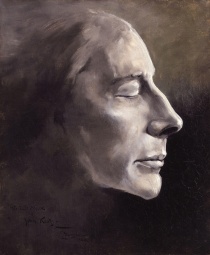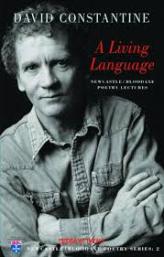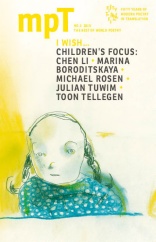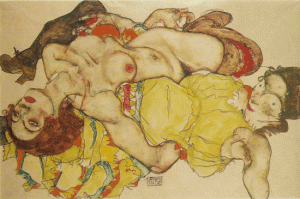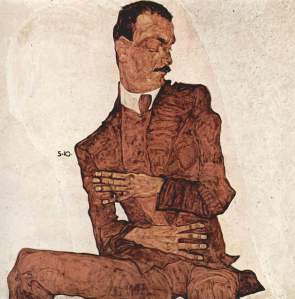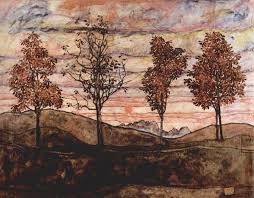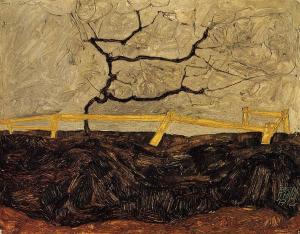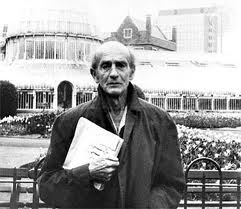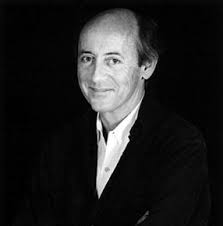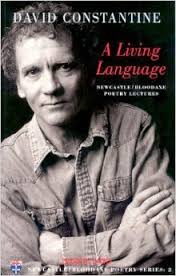This is my review of Friedrich Hölderlin’s only novel, Hyperion or The Hermit in Greece. The review first appeared in the Temenos Academy Review (No. 20, 2017). The translation I am discussing is a very recent one by India Russell which was published by Melrose Books in 2016.

Begun in Tübingen in 1792 in the aftermath of the French Revolution, and published in two volumes in 1797 and 1799, Hölderlin’s only novel is really a philosophical and spiritual biography of its eponymous hero. It does not deliver what a novel reader might expect in terms of characterisation, suspense or specificity of incident (though its retrospective narrative is cleverly designed). It is best read as a doorway to the more metaphysical thought that underpins the later poetry. But Hölderlin’s youthful passion and urgency are evident, for example, in the portrait of his native Germany. Its people and culture are subjected to a withering satirical attack, with the corrupt state of German life acting as the penultimate phase of Hyperion’s long education. He reports, ‘I can think of no people more torn than the Germans. Artisans you see, but no human beings, thinkers, but no human beings, priests, but no human beings […] – is that not like a battlefield, where hands and arms and all limbs lie dismembered amongst one another, whilst the shed life-blood runs away into the sand?’ Such vivid images of division – between warring powers, within bodies of individuals – are central to Hölderlin’s critique of what was wrong with late eighteenth-century Europe.
Hyperion is an epistolary novel, the narrator writing from his native Greece to a friend, Bellarmin, who lives in Germany. Hölderlin’s prose is heightened and mellifluous, dramatically ebbing and flowing; and India Russell’s translation catches this far better than Willard Trask’s 1965 version or David Schwartz’s from 1990. The writing is breathless and aspiring; it is Shelley’s prose not Keats’s. The novel’s picaresque narrative records Hyperion’s travels after his birth on the Greek island of Tenos, where he spends his childhood and school years. He moves to Smyrna, returns home, then travels again to Calaurea, an island close to the eastern coast of the Peloponnese. It is here he meets and falls in love with the young woman, Diotima. Called back to action in the world, he fights the Turkish forces occupying Greece and later fights alongside Russian troops. He is defeated and wounded, then travels to Sicily, thence to Germany, befriending Bellarmin. Only on his return to Tenos does the novel’s account of his life open. So the narrative trajectory means that Hyperion reflects on his own life’s journey in the letters. Importantly, though no significant external events intervene, we perceive a difference between the Hyperion of letter one and the man writing the final words of the novel.

The retrospective nature of the narrative only partly accounts for what Hölderlin calls in the Preface Hyperion’s ‘elegiac character’. In his opening letters, the protagonist regards reflection/judgement (‘Urteil’) as a curse, cutting him off from an unthinking sense of oneness with the world. As the novel opens, it is especially in relation to the natural world that Hyperion feels this alienation, though the limits of his current understanding are revealed: ‘I know not what happens to me when I lift my eyes before your beauty […] My whole being becomes quiet and harkens’. He later exclaims, ‘To be one with all, that is the life of the Divine, that is the heaven of man’ and yet ‘a moment’s reflection casts me down […] Nature closes her arms and I stand like a stranger before her’. He identifies his schooling as having made the first break between the sense of oneness experienced by a child and this later sense of estrangement. The loss is blamed on ‘Knowledge’ which inculcates the desire to be ‘absolutely reasonable, [to] have thoroughly learnt to distinguish myself from that which surrounds me’; and in such a state of nurtured division he suffers solitude and rejection from the world about him.
Hölderlin’s preface to the Thalia fragment of Hyperion (published by Schiller in 1794) lays these issues out more philosophically. ‘Man would like to be in everything and above everything’ he argues, quoting Loyola: ‘Not to be confined by the largest, but to be contained in the smallest, is divinity’. He observes how this pronouncement ‘designates the all-desiring, all-subjugating dangerous side of man as well as the […] most beautiful condition he can achieve’. On one side, we desire the freedom to be above our lives, to shape them, yet on the other we long to feel at home in our world, to be in it at the cost of our liberty. With one eye on the Revolution in France, it seems to Hölderlin that pursuit of freedom at the expense of a sense of unity with the world leads to a deracinated fanaticism that harms both ourselves and the world. But on the other hand, to experience existence without liberty and self-determination is to be sunk deeply in a form of passivity verging on idiocy. Hölderlin’s originality lies in his view of human life as being endlessly dynamic, the two impulses – to be both in and above our own lives – are to be held in tension, the self drawn in contrary directions with no anticipation of a resolution.
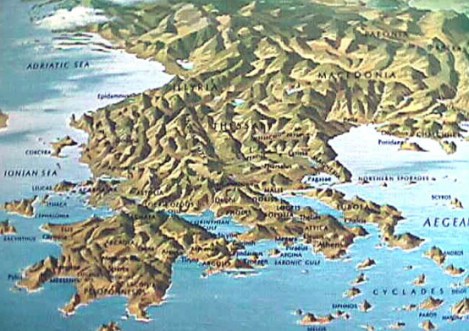
In the novel, Hyperion’s early and brief encounters with Adamas on Tenos present one possible easement of his sense of alienation. Excited by the older man’s devotion to the past, he reads the Classics and visits Mount Athos, Olympia, Mount Cynthus and the grave of Homer. Hölderlin’s earlier poems frequently echo just this nostalgic impulse in his idealisation of the Classical past. David Constantine points out that for Hölderlin, ‘the civilisation of Periclean Athens seemed to him the best the human race had ever achieved and he wanted an equivalent of it for his own day and age and even believed the French Revolution might bring it about’. So this is not, for Hölderlin, any simple nostalgia but rather a call to spiritual and philosophical revolution. A poem like ‘The Archipelago’ portrays the devastation of eighteenth-century Greece (under the rule of the ‘Persian’) but also anticipates its renovation:
Lovingly back to the waiting abandoned river
Come the people of Athens and down from the homeland’s mountains
The shining crowds, meeting like waters, replenish
The emptied plain with joy.
(tr. Constantine)

But in the novel, Adamas’ overly literal idealisation of the past is quickly dismissed by Hyperion. Alone, Adamas travels on into Asia in search of peoples of ‘rare excellence’ who, he hopes, are still living out such ancient virtues. Left dissatisfied, Hyperion is bored and restless on Tenos. He leaves for Smyrna and encounters a very different solution to his problems in the form of Alabanda, a man devoted not to the worship of a past age but to the struggle for social change. For a period Alabanda and Hyperion live ‘like two streams which roll down from the mountains and cast off the burden of earth and stone and rotten wood and the whole inert chaos that had impeded them, to forge the way to one another and break through until where, seizing and seized with equal strength, united in one majestic River, they then begin the journey in to the wide Sea’. Such a sentence is a good illustration of Russell’s skill in this translation – the results are flowing, energetic, with just the right degree of distancing from conventional language usage. For the two men, the present state of society is like a ‘barren, rotten tree’, needing to be felled so that a ‘new world’ can grow in its place. But Alabanda is too much a man of action, a fighter, consumed with the wish to exercise freedom to effect social change and (as the simile above suggests) liable to destructive violence and a moral fanaticism. His mode of operation is to ‘burn the weeds […] blast the dull clods from the Earth!’. He himself admits to being ‘rough and offensive and unsociable’. Hyperion finds he cannot commit himself to this course either and we become conscious of his tendency to vacillate between (again) being within and without, between commitment and alienation and aware too of the fact he perceives this as is a problem needing to be resolved.
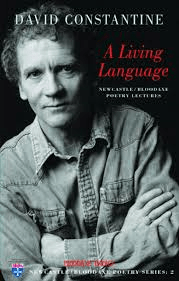
It is on the visit to Calaurea that Hyperion meets Diotima, a young woman who is unreflectively at home in the natural world. This character was introduced into later drafts of the novel and is a portrait of Susette Gontard, the married woman whose children Hölderlin was appointed to tutor in 1795, the woman he loved. Though Susette seems to have reciprocated Hölderlin’s affections, the relationship was doomed. He dedicated the second volume of Hyperion to her. The name Diotima appears frequently in Hölderlin’s later poetry and is the name of the seer or priestess who first taught Socrates to regard love as the means of ascent to a contemplation of the Divine. In Hyperion she lives contentedly in the world as opposed to Alabanda’s position above the world, and his wish to change it. Her heart is most at home among flowers, ‘as though it were one of them’, and Hyperion enviously observes her unreflective unity with the natural world: ‘Diotima’s eyes opened wide and quietly, as a bud opens, her dear little face opened before the airs of Heaven, became pure speech and soul and, as though she began a flight into the clouds, her whole form stood stretched gently upwards in easy majesty, her feet hardly touching the Earth’.
Diotima is initially unconscious of the beauty Hyperion sees in her but she becomes more self-aware in the letters documenting their relationship. She also comes to understand the real nature of Hyperion himself, recognising that (as Hölderlin’s philosophical thinking suggests) he cannot remain content with what she has to offer. Though Hyperion may indeed wish for such oblivious contentment, it is ironically Diotima who suggests he must do otherwise: ‘Will you lock yourself in the heaven of your love, and leave the world that needs you? […] You must, like the ray of light, descend like the all-refreshing rain, you must go down into the land of the mortals, you must enlighten like Apollo’. Light, healing and poetry are, of course, among Apollo’s many attributes and it will be as an artist that Hyperion must give (as Diotima puts it) ‘what you have within you’. In ‘As on a holiday…’, one of his later hymns, Hölderlin advises his fellow poets:
us it behoves to stand
Bareheaded beneath God’s thunder-storms,
To grasp the Father’s ray, no less, with our two hands
And, wrapping in song the heavenly gift,
To offer it to the people.
(tr. Hamburger)

It takes a long time for Hyperion to accept Diotima’s proposal that his true role must be that of an artist. Only after the process of recording his life for Bellarmin does Hyperion achieve what Hölderlin’s Preface refers to as the ‘resolution of dissonances’ in his character. At one point he notes, ‘I am an artist, but I am not skilled’. He returns to Alabanda for a period, fighting and being wounded in a war with the ‘Persians’, then suffers the loss of Diotima. Her last words to him suggest that he has been ‘put to the test and it is bound to become clear who you are’. Hyperion’s test will include the writing of his self-examining epistles. In effect, Hyperion ends by pursuing an art, like Hölderlin’s mature poetry, that essays some interim representations of the Heraclitean ‘One differentiated in itself’. Russell’s essay, accompanying her translation, interprets this as the lightning strike of a ‘Divine force’, an insight that (loosely) links Hölderlin, Shelley and Empedocles. She tends to replace philosophical incisiveness with a blustering, autobiographical style, but what her exposition lacks in rigour it makes up for in enthusiasm.

In a letter of 1801, Hölderlin declares there ‘is only one quarrel in the world: which is more important, the whole or the individual part’. Hyperion finally accepts that the irresolvable tension, the pulse or heartbeat vital to the fully-lived human life is that between unity and freedom, Being and reflection, living in life and above it. With new-found optimism, he compares these ‘dissonances of the world’ to lovers’ quarrels, where ‘Reconciliation is in the midst of strife and all that is parted finds itself again’. He offers a further encouraging metaphor: ‘The arteries divide and return to the heart and one, eternal glowing life is All’. What remains to us is an unending quest or process not liable to completion or final stasis. The impossibility of completion is famously expressed in the novel’s final, almost throw-away phrase (‘Nächstens mehr’). In Russell’s fine translation this is rendered as ‘More shortly’ and the ‘more’ that followed was, of course, the poetry for which Hölderlin is now most famous.


